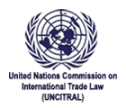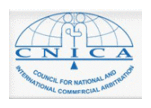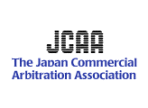News and Overviews
A Brief Overview of the Australian Centre for International Commercial Arbitration

Positioning in the Region
The Australian Centre for International Commercial Arbitration (ACICA) positions itself as Australia's only international arbitral institution. Established in 1985 as a non-profit public company its membership includes world leading practitioners and academic experts in the field of international commercial arbitration and other forms of dispute resolution, such as Jan Paulsson, Emmanuel Gaillard, Gabrielle Kaufmann-Kohler, Julian Lew QC, etc.
ACICA cooperates with over 50 global arbitral bodies, including the Permanent Court of Arbitration at The Hague.
On 2 March 2011, the Australian Government confirmed ACICA as the sole default appointing authority competent to perform arbitrator appointment functions under the amended International Arbitration Act of 1974.
Peculiarities of the Rules of Arbitration
It is important to note that ACICA Arbitration Rules in effect since August 01, 2011 incorporate the procedure for appointment of a so-called Emergency Arbitrator whose competence includes taking emergency interim measures prior to the formation of the arbitral tribunal. This novelty complies with the latest practices of many of the leading arbitration centres (such as SCC 2010 Rules, ICC 2012 Rules) and is implemented in order to cover the rather long period of time between the submission of the request for arbitration and the constitution of the arbitral tribunal whose jurisdiction as a common rule extends to the interim protection measures (of course, without prejudice to a party’s right to apply to a state court for such interim measures in accordance with the national arbitration law).
According to ACICA Arbitration Rules Schedule 2, Paragraph 2.1, ACICA shall use its best endeavours to appoint an Emergency Arbitrator within 1 business day from receipt of the application to grant interim measures. The appointed arbitrator shall make a decision in respect of such an application within 5 business days from the date of receiving the application.
Grounds for granting emergency interim measures are listed in Schedule 2 Paragraph 3.5 and include the following:
- Irreparable harm is likely to result if the Emergency Interim Measure is not ordered;
- Such harm substantially outweighs the harm that is likely to result to the party affected by the Emergency Interim Measure if the Emergency Interim Measure is granted;
- There is a reasonable possibility that the requesting party will succeed in the merits provided that any determination on this possibility shall not affect the freedom of decision of the Arbitral Tribunal in making any subsequent determination.
It is important to note that to make a decision on the granting of interim measures, all the above circumstances must exist simultaneously.
Another interesting peculiarity of ACICA is a detailed procedure for the appointment of arbitrators.
Along with the common rules in this regard laid down in Art. 9-11 of the ACICA Arbitration Rules the Centre has developed a special Appointment of Arbitration Rules, which applies, e.g. when parties do not reach an agreement on the sole arbitrator or when two party-appointed arbitrators do not choose the presiding one.
According to paras 1.2, 9 of the Appointment of Arbitration Rules the decision on the appointment in such cases is made by ACICA Executive (a collective body comprising the President, Vice-President and the Treasurer of ACICA). Decisions are made based on the Appointment Application which can be submitted by a party to a dispute and (1) upon the receipt of a proposal of a suitable person to serve as an arbitrator by the Appointment Committee (ACICA Appointment of Arbitration Rules, para 7), (2) only after consulting the opinion of at least 3 members of the Advisory Board, which comprises persons nominated by the Chief Justice of Australia, the Chief Justice of the Federal Court of Australia, the President of the Australian Bar Association and other persons listed in para 4.2 of the Appointment of Arbitration Rules. It is also important that before making the appointment of an arbitrator, an ACICA Executive shall allow the other party or parties an opportunity to serve on ACICA any reasons why such an arbitrator should not be appointed (ACICA Appointment of Arbitration Rules, para 9.1).
27.12.2012
Specialists of Genuine Arbitration Service, Ltd. represent clients’ interests in arbitration administered by the Centre and will be happy to provide you with any possible assistance in arbitral proceedings governed by the arbitration rules of the Centre.







1.jpg)





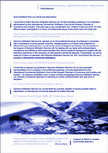
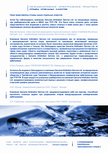






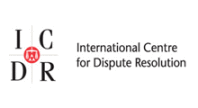
.jpg)
1.jpg)

.jpg)

1.png)

1.jpg)








